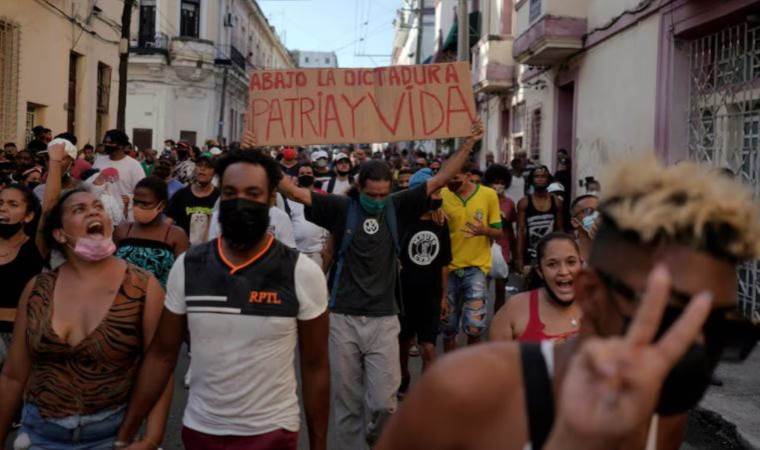Protest erupts in eastern Cuba amid blackouts and food shortages
Hundreds in Cuba's second-largest city, Santiago, engaged in a rare public protest on Sunday, according to social media and official reports, prompting Cuban President Miguel Diaz-Canel to call for dialogue in an "atmosphere of tranquillity and peace."

Protesters in Santiago took to the streets with chants of "power and food," according to videos posted on social media, as blackouts in places extended for 18 hours or more a day, jeopardizing frozen food and ratcheting up tensions on the island.
Cuba has fallen into a near unprecedented economic crisis since the COVID-19 pandemic, with vast shortages of food, fuel and medicine stoking a record-breaking exodus that has seen upwards of 400,000 people migrate to the United States.
Diaz-Canel, confirmed the Santiago protest on social media platform X, formerly known as Twitter, shortly after the rally concluded.
Diaz-Canel, adressing the situation have said:
"Several people have expressed their dissatisfaction with the situation of electrical service and food distribution. The disposition of the authorities of the Party, the State and the Government is to attend to the complaints of our people, listen, dialogue, explain the numerous efforts that are being carried out to improve the situation, always in an atmosphere of tranquility and peace."
Diaz-Canel also said "terrorists" from the United States were seeking to foment further uprisings.
"This context will be taken advantage of by the enemies of the Revolution, for destabilizing purposes," Diaz-Canel said on X.
Police had arrived in Santiago to "control the situation" and to "prevent violence," according to an account posted on social media by state-run CubaDebate.
It was not immediately clear whether anyone had been arrested during the protest.
Beatriz Johnson, aSantiago Communist Party official, said protesters in the eastern Cuban city had been "respectful" and had "listened attentively" to the government's explanations of food and electricity shortages.
Videos on social media suggest the rally was peaceful.
The U.S. embassy in Havana said it was monitoring the protests in Santiago and elsewhere.
"We urge the Cuban government to respect the human rights of the protesters and address the legitimate needs of the Cuban people," the embassy said on X.
Cuban foreign minister Bruno Rodriguez blasted the U.S. Embassy comments late on Sunday, blaming Cuba's "acute economic situation" on the long-standing U.S. trade embargo and sanctions.
"The US Government, especially its embassy in #Cuba, must refrain from interfering in the country's internal affairs and inciting social disorder," Rodriguez said on X.
Protests on the island are exceedingly rare but have cropped up more often in recent years as economic crisis rocks the country.
Rights groups, the European Union and the United States have critiqued Cuba's response to anti-government protests more than two years earlier on July 11, 2021 - the largest since Fidel Castro's 1959 revolution - as heavy-handed and repressive.
Cuba's government said those jailed were guilty of assault, vandalism and sedition.

